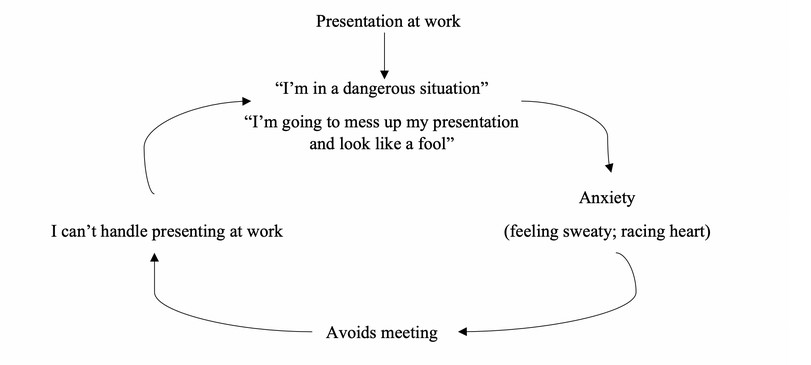What is CBT?

Cognitive behavioural therapy (CBT) is based on the principles that our emotions and behaviours are influenced by our thoughts. Often these are unhelpful automatic thoughts, meaning that they occur in our mind without consciousness, leading us to feel overwhelmed, wanting to escape a situation and unsure why.
CBT helps people to unpack their situation to identify triggers in their environment, automatic thoughts, negative emotions, and unhelpful behaviour patterns. For example, you may feel scared every time you walk past your neighbour’s dog in the front yard or feel anxious if you need to speak in front of a crowd of people. This is likely because you are being influenced by the thought “this situation is dangerous” or “I’m going to mess up my presentation and look like a fool”, which may lead you to avoid going past your neighbour’s house or giving an important presentation at work.

CBT is a collaborative process. It involves using a range of cognitive and behavioural techniques to help individuals to recognise unhelpful automatic thoughts and behaviour patterns (e.g., avoidance of the feared situation) that form a vicious cycle and reinforces negative emotions such as anxiousness or down.
Cognitive strategies involve challenging unhelpful thoughts by weighing up evidence for and against them and replaces these with more realistic and helpful thoughts.
Behavioural approaches include facing feared situations, developing adaptive coping strategies to help regulate your mood, or prepare for social situations using role play.
CBT is an effective treatment for a range of mental health issues such as anxiety, depression, or OCD across all age groups. The treatment is tailored to each individual based on a formulation of the person’s presenting problem(s) and background information. CBT can show people that they have the ability to challenge and modify their thoughts and behaviours to improve their mood and overall quality of life as well as develop effective ways of coping with difficulties in life.
Contact Prosper Health Collective to learn more about how CBT could help you or your child.